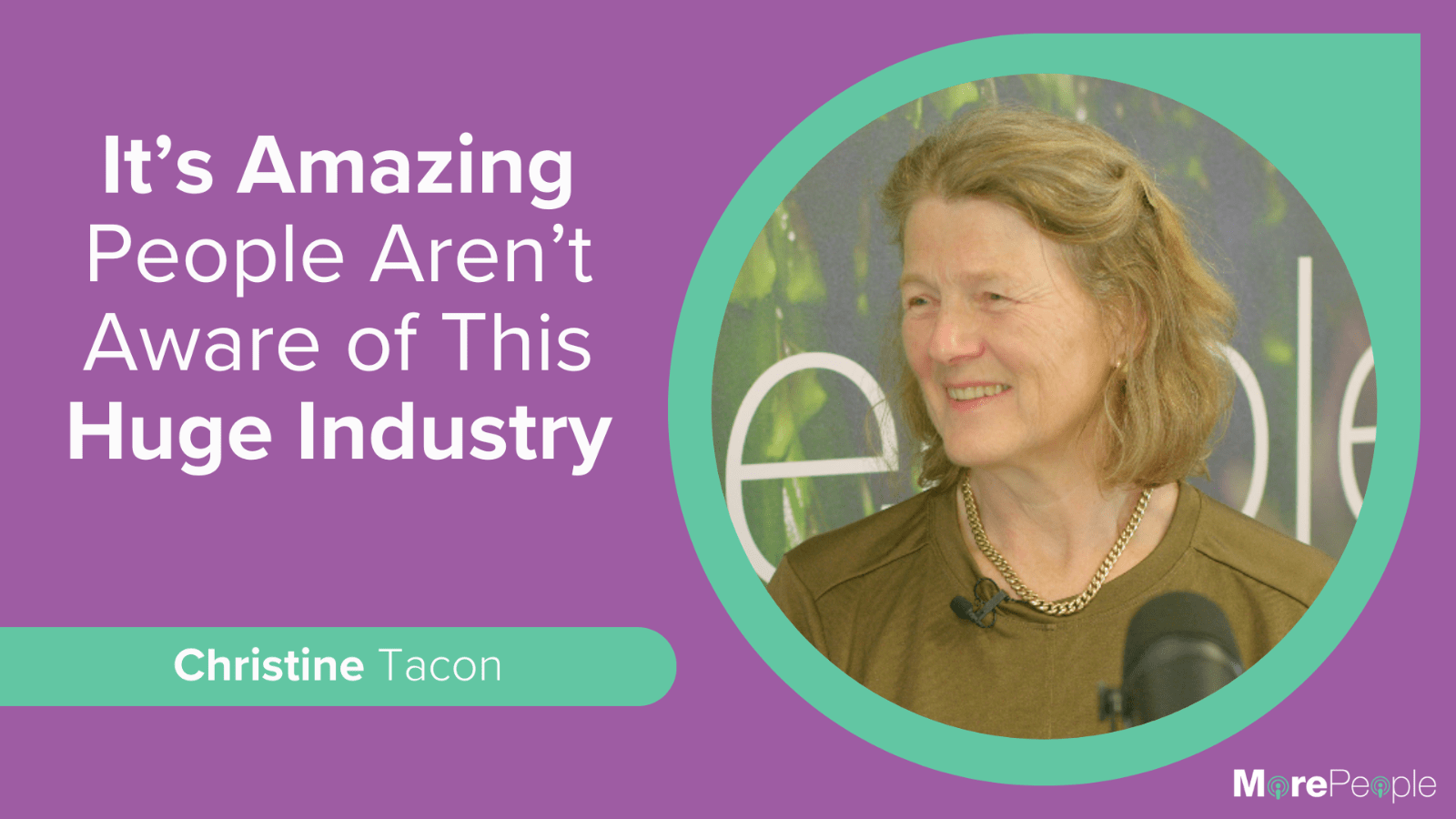
Episode 51: The MorePeople Podcast with Christine Tacon
From Grocery Watchdog to Industry Advocate: Christine Tacon on Developing Talent, Driving Change & Building Trust
In a recent episode of TheMorePeople Podcast, our host Andrew Fitzmaurice sat down with one of the most influential figures in UK food and farming: Christine Tacon CBE. Known widely as the first Groceries Code Adjudicator and now a leading voice across the agri-food sector, Christine brings a wealth of experience, insight and no shortage of honesty to the table.
Their conversation spans career growth, the future of leadership in the food industry, and the need for deeper collaboration across the supply chain.
A Career of Impact, Built on Change
Christine’s CV is as diverse as it is impressive. From leading the Co-op as a board-elected director to chairing MDS (Management Development Services), she has spent decades shaping the landscape of British food and farming.
“I went back to the Co-op and thought - wow, so much has already changed,” she reflected. “It gave me imposter syndrome at first, but I realised the food chain experience I bring is still vital.”
That humility underlines a key message in the episode: change in the sector is happening, but it needs both continuity and challenge.
MDS: The Future of Industry Leadership
One of the most powerful parts of the conversation focused on MDS, the industry-led graduate scheme Christine has chaired for nearly a decade.
MDS provides structured, hands-on training to young professionals entering the food, farming, and supply chain world. With four six-month placements and a Level 5 apprenticeship, the programme develops leadership skills and real-world experience.
“We don’t care what your degree is in: music, archaeology, geography - what matters is potential,” Christine explained. “Our trainees come out resilient, skilled, and committed to staying in the food industry.”
Today, MDS has over 100 trainees across more than 60 member companies, delivering a much-needed talent pipeline for an industry that often struggles with awareness and retention.
From Farm to Fork: Building Bridges Across the Supply Chain
With one foot in early-stage career development (via MDS) and the other at board level (via the Co-op), Christine brings a unique view of the entire supply chain.
“There’s still a gap in understanding between retailers and producers,” she said. “Part of my job now is making sure issues like food security, contract length and fair pricing are heard at board level.”
She also highlights the differences between the UK and other markets, particularly around pricing models and co-operative working. “In Europe, prices flex. Growers are rewarded for risk and innovation. Here, contracts are too rigid, and producers can end up squeezed.”
Her advice? More collaboration, more co-ops, and more courage to say no when deals aren’t sustainable.
Empowering Women in the Sector
Christine also opened up about her role in founding Women in Food & Farming, a community built to connect, support and inspire the next generation of women in the industry.
“I never used to go to women’s leadership events. I didn’t want to be defined by my gender,” she admitted. “But I realised we need to support the quieter voices too, the people who might not put themselves forward but have so much to offer.”
Today, the network runs regular events, offers mentoring, and creates spaces for young women to find role models, ask questions, and build their careers in a more inclusive industry.
Takeaways for the Industry
Here are a few standout themes from the episode:
Talent is out there - if we broaden the net. MDS is proof that students from any background can thrive in food and farming with the right structure and support.
Retailers and suppliers must work together better. Real trust and collaboration will be essential to navigate cost pressures, labour shortages, and changing consumer behaviour.
Support networks make a difference. Whether it's through co-ops or communities like Women in Food & Farming, building connection is key to resilience.
Final Thoughts
Christine Tacon’s story is a powerful reminder of what leadership in the food and farming industry can , and should look like. Her commitment to nurturing talent, improving collaboration, and championing fair practices has left a deep imprint on the sector. As we continue to face challenges around recruitment, food security, and sustainability, voices like Christine’s help shape a more inclusive, resilient, and forward-thinking industry. Whether you're a graduate entering the food sector or a business looking to make meaningful change, there’s inspiration and a clear call to action in her words.
